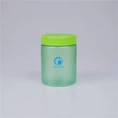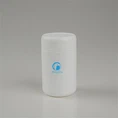Nowadays, more and more people are getting used to taking vitamins to supplement their nutrition. Chewable vitamins, with their sweet and tangy flavors, are especially popular among children and even many adults because they are tasty and easy to take. But here comes the question: are chewable vitamins actually absorbed better than traditional pills?
Basic Differences
Chewable Vitamins: Designed to be chewed before swallowing. They start breaking down in the mouth and may release nutrients more quickly once they reach the stomach and intestines.
Pill Vitamins: Usually swallowed whole. They need to dissolve in the stomach before the body can absorb them. Their effectiveness depends on the pill's coating, formulation, and dissolution rate.
Do They Really Absorb Better?
Some experts suggest that chewables may be easier to digest since they are already broken down before entering the stomach. This can be especially helpful for people with lower stomach acid or weaker digestion, such as older adults.
However, that doesn't mean pills are inferior. Well-made tablets or capsules can release nutrients in a controlled way and provide absorption just as effectively as chewables.
Scientific research is mixed. Some studies show that chewables and liquid vitamins may be absorbed faster, but when it comes to long-term bioavailability-the total amount of nutrients the body actually uses-the difference is usually small.
Key Factors That Truly Affect Absorption
Digestive health – People with low stomach acid or weaker digestion may benefit more from chewables.
Formulation and quality – A poorly made supplement won't dissolve properly, regardless of its form.
Type of vitamin – Fat-soluble vitamins (A, D, E, K) need to be taken with dietary fat to absorb well, whether chewable or pill.
Consistency – Taking supplements regularly is more important than the form. For those who dislike swallowing pills, chewables may encourage better compliance.
Pros and Cons of Chewables
Pros:
Easier for children, seniors, and people with swallowing difficulties.
Available in different flavors, making it easier to stick with.
Faster breakdown, which may result in quicker effect.
Cons:
Often contain added sugars or flavorings.
Usually lower in nutrient concentration compared to pills.
Tastes like candy, which increases the risk of overconsumption.
Conclusion
For most people, there isn't a significant difference in the overall effectiveness of chewable vitamins versus pills. What matters more is the supplement's quality, formulation, and whether you take it consistently with the right diet.
If you have trouble swallowing pills or have digestive concerns, chewables can be a practical option. But as long as you choose a reputable brand with reliable manufacturing, both forms can help you effectively meet your nutritional needs.
At Mingda, we specialize in high-quality plastic packaging for vitamins, supplements, and health products. Our wide range of PET and HDPE bottles, tamper-evident caps, and sealing solutions is designed to keep products fresh and safe during storage and transportation.
Looking for professional supplement packaging? [Contact Mingda today!]
















